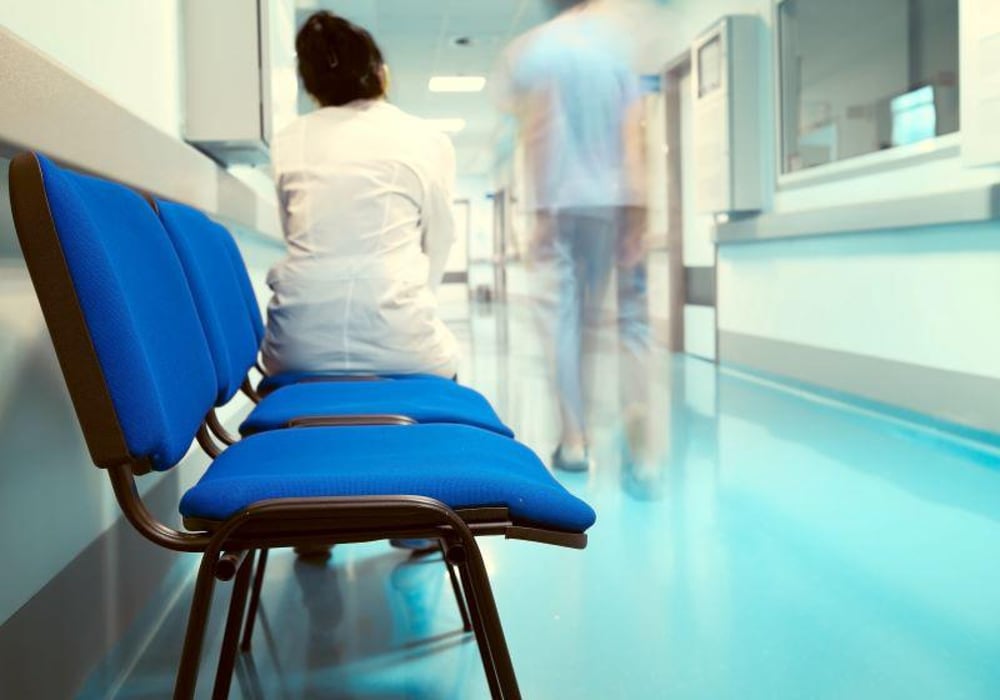Poll Shows More Americans Worried About Health Care Understaffing

FRIDAY, March 10, 2023 (HealthDay News) -- A growing number of Americans are feeling the effects of the health care staffing crisis in the United States, a new HealthDay/Harris Poll has revealed.
According to the results of the poll, conducted Feb. 16 to 21 among 2,048 adults aged 18 years and older, more than a third (35 percent) of people noticed or had been affected by health care staffing shortages at the time of the poll, up from 25 percent last November.
These shortages have hampered people's ability to receive medical care. More than four out of five U.S. adults (84 percent) have tried to get health care in the past six months, and of those, nearly three in four (73 percent) experienced delays or challenges in getting the care they need, the poll shows. Furthermore, more than half of the poll's participants (52 percent) said they are worried they will not be able to get needed medical care because of staffing shortages.
"We've had a health care workforce crisis in this country for a long time. It predated COVID," Sophia Tripoli, director of the Center for Affordable Whole Person Care for Families USA, a nonprofit health consumer advocacy group, told HealthDay. "But I think the pandemic public health emergency has really amplified all of the shortages and the staffing issues."
The American Hospital Association (AHA), a health care industry trade group, agreed. "Navigating workforce pressures were a challenge for hospitals and health systems even before the COVID-19 pandemic, but these challenges have been exacerbated as many hospitals and health systems continue to face significant financial constraints, including higher expenses for labor, supplies, equipment, and drugs," the AHA said in a statement. "In addition, hospitals are increasingly paying higher wages to keep and recruit enough staff while other staff leave the health care field due to burnout and retirement."
Tripoli chalks up many of the ongoing problems to the corporatization and consolidation of American health care, as independent hospitals and clinics were scooped up by regional chains and health care networks. "We've seen a lot of data after these mergers and acquisitions about reductions in wages and changing conditions for the workforce as private equity comes in and looks at where they can maximize revenue," Tripoli told HealthDay. "It's been problematic in terms of the quality of care, in terms of the number of hours the workforce is expected to work. It really is a major driver in burnout."
Tripoli suggests that the United States could use a task force or commission to analyze health care workforce trends and come up with solutions, similar to the work of the Medicare Payment Advisory Commission regarding public insurance plans. "We really do need to have that sort of entity that is charged with looking specifically at the health care workforce and making sure that we're meeting the needs of American families in today's modern society," Tripoli said.
Related Posts
Un nuevo medicamento le ofrece más tiempo a las pacientes con un cáncer de endometrio avanzado
MARTES, 28 de marzo de 2023 (HealthDay News) -- Unos investigadores han...
Surgery May Help Advanced Cancer Patients With Obstructed Bowel
THURSDAY, Aug. 3, 2023 (HealthDay News) -- Malignant bowel blockages are common...
Shopping Black Friday for TVs, Furniture? Don’t Forget the Tip-Over Kit
WEDNESDAY, Nov. 23, 2022 (HealthDay News) -- That new television, cabinet or...
